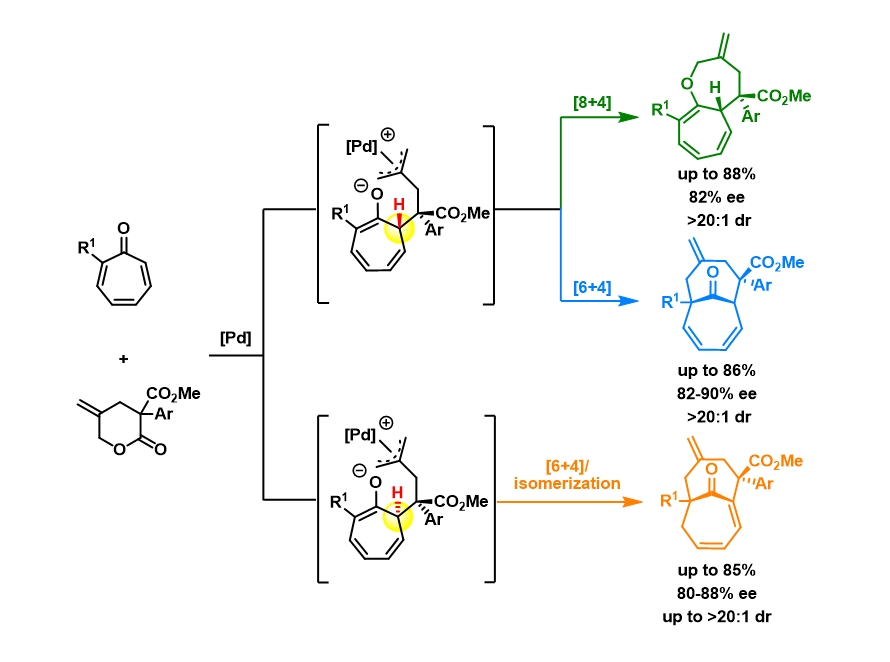
A research team led by Prof ZHAO Yu, from the Department of Chemistry, has discovered catalyst-controlled divergent reactions to synthesise three different classes of medium-sized bicyclic compounds from the same starting materials for the development of therapeutic drug molecules. Prof Zhao said, “The initial research plan was to develop a catalyst which would allow for the selective formation of one class of bicyclic medium-sized ring compounds that was never accessed before, so it would represent a new chemical space for drug discovery. However, in the course of our work, we found that by switching the reaction conditions, three skeletally different medium-sized bicyclic compounds with high conversion ratios could be obtained. Such divergent syntheses with high efficiency will greatly enhance chemists’ ability to access new chemical space for delivering a larger library of potential drug candidates.”
The figure above shows the reaction pathways of the divergent synthesis of three classes of compounds. Using the same set of starting materials and palladium catalyst but subjected to different reaction conditions, it results in three structurally different medium-sized bicyclic compounds, shown in green, blue and orange. Read more about their new discovery here.
